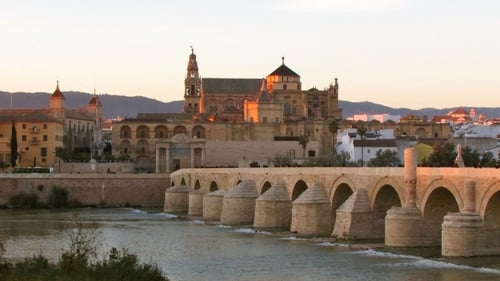Anastasia Lapsui
Birth : , Nida, Yamalo-Nenets Autonomous Okrug, Russia

Writer

Director

Director
In the 1860’s Alaska and Finland are simultaneously parts of the Russian Empire. A Finnish mining engineer Simon buys an Alaskan native American girl and decides to bring her to Finland. The child, Tsamo, is baptized and Simon starts to teach her European manners. Tsamo thinks she’s married to Simon and acts accordingly, but when Simon marries a lady of his own age and class, she gets confused. Simon is forced to send the girl away and the battle over Tsamo’s identity takes complicated turns.

Editor
A fertilized egg develops into a human. He is born, lives his life and eventually dies. Human life is a journey, the path we take from birth to death. The film is a story about the journey of Minja's life. At the end of the film, there is a dedication to Minja, Minja’s mother and grandmother. There are no other texts at the end of the film. The film also lacks a director as it is cut from existing film material. The Creator has directed Minja's life.

Director
A little Nenets girl Neko is taken against her will from her home to a boarding school in a remote Russian village. Forced to adapt to a foreign culture and new customs, Neko rebels and decides to flee, hoping to get back to her family and old habits.

Editor
Nedarma (Travelling) is one of several documentary features co-directed by Anastasia Lapsui and Markku Lehmuskallio that portray the daily lives of the Nenets, Lapsui’s tribe based in the northern tundra of Siberia. The film invokes Nenets cosmology as a way of leading into a filmic structure that portrays the arc of life from birth to death.

Writer
Nedarma (Travelling) is one of several documentary features co-directed by Anastasia Lapsui and Markku Lehmuskallio that portray the daily lives of the Nenets, Lapsui’s tribe based in the northern tundra of Siberia. The film invokes Nenets cosmology as a way of leading into a filmic structure that portrays the arc of life from birth to death.

Director
Nedarma (Travelling) is one of several documentary features co-directed by Anastasia Lapsui and Markku Lehmuskallio that portray the daily lives of the Nenets, Lapsui’s tribe based in the northern tundra of Siberia. The film invokes Nenets cosmology as a way of leading into a filmic structure that portrays the arc of life from birth to death.

Director
A look into the recent history of the Chukchi people.

Director
An elderly Nenets woman in teepee on northern Russia's Yamal Peninsula recounts her early life betrothed to a deity for the entertainment of a blind young girl. In the Nenets culture, a girl child can be married to holiest of holies, Num, before or after her birth. Lonely old Numd' Syarda (which means, literally, 'tied to Num') entertains the blind young Ilne ('giver of life') with stories of how she became one of these chosen few.

Music
A documentary on the experiences of the Nubetya Yaptiks nomadic family in the Yamal Peninsula, Eastern Siberia, from 1992 to 2001.

Sound
A documentary on the experiences of the Nubetya Yaptiks nomadic family in the Yamal Peninsula, Eastern Siberia, from 1992 to 2001.

Editor
A documentary on the experiences of the Nubetya Yaptiks nomadic family in the Yamal Peninsula, Eastern Siberia, from 1992 to 2001.

Writer
A documentary on the experiences of the Nubetya Yaptiks nomadic family in the Yamal Peninsula, Eastern Siberia, from 1992 to 2001.

Director
A documentary on the experiences of the Nubetya Yaptiks nomadic family in the Yamal Peninsula, Eastern Siberia, from 1992 to 2001.

Makeup Artist
An anthology of stories about the indigenous nomadic people of the Russian tundra under modern Communist rule. Finland's submission for the Academy Award for Best Foreign Language Film in 2000

Costume Design
An anthology of stories about the indigenous nomadic people of the Russian tundra under modern Communist rule. Finland's submission for the Academy Award for Best Foreign Language Film in 2000

Editor
An anthology of stories about the indigenous nomadic people of the Russian tundra under modern Communist rule. Finland's submission for the Academy Award for Best Foreign Language Film in 2000

Writer
An anthology of stories about the indigenous nomadic people of the Russian tundra under modern Communist rule. Finland's submission for the Academy Award for Best Foreign Language Film in 2000

Director
An anthology of stories about the indigenous nomadic people of the Russian tundra under modern Communist rule. Finland's submission for the Academy Award for Best Foreign Language Film in 2000

Sound Recordist
This Finnish documentary film directed, written, produced and shot by Markku Lehmuskallio is the first part of a documentary trilogy about the Nenets people. It's a folkloric documentary describing the traditional nomadic life of the Nenets on the Yamal Peninsula. It includes Nenets songs sung by Anastasia Lapsui and her mother Maria Lapsui. The film was the first film collaboration of Markku Lehmuskallio and Anastasia Lapsui.

Editor
This Finnish documentary film directed, written, produced and shot by Markku Lehmuskallio is the first part of a documentary trilogy about the Nenets people. It's a folkloric documentary describing the traditional nomadic life of the Nenets on the Yamal Peninsula. It includes Nenets songs sung by Anastasia Lapsui and her mother Maria Lapsui. The film was the first film collaboration of Markku Lehmuskallio and Anastasia Lapsui.

Self - Narrator (voice)
This Finnish documentary film directed, written, produced and shot by Markku Lehmuskallio is the first part of a documentary trilogy about the Nenets people. It's a folkloric documentary describing the traditional nomadic life of the Nenets on the Yamal Peninsula. It includes Nenets songs sung by Anastasia Lapsui and her mother Maria Lapsui. The film was the first film collaboration of Markku Lehmuskallio and Anastasia Lapsui.



















